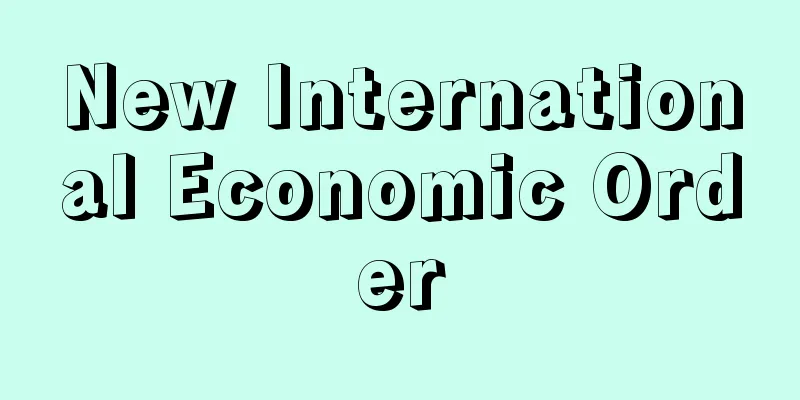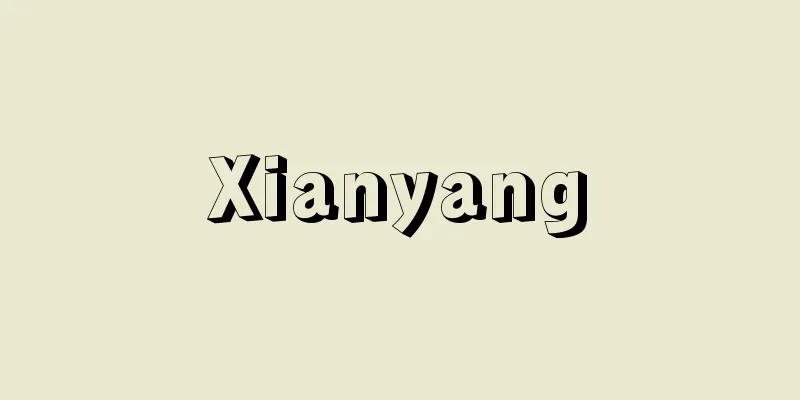New International Economic Order

|
Abbreviated as NIEO. Following the relative success of the oil strategy (a sharp increase in oil prices against the backdrop of an embargo) implemented by the Organization of the Petroleum Exporting Countries (OPEC) in the fall of 1973, the demands of developing countries towards developed countries were culminated in the "Declaration on the Establishment of a New International Economic Order" at the United Nations Special Session on Natural Resources in April 1974, raising the octave even higher. According to the Declaration, the New International Economic Order is based on the recognition that "Developing countries, which account for 70 percent of the world's population, earn only 30 percent of the world's total income. It has proven impossible to achieve fair and balanced development of the international community under the existing international economic order. The gap between developed and developing countries was formed at a time when most developing countries did not yet exist as independent nations, and it will continue to widen within structures that perpetuate these inequalities." In its place, the Declaration calls for a "new international economic order based on fairness, sovereign equality, interdependence, common interest and cooperation among all nations, which will rectify inequalities, eliminate existing injustices and close the widening gap between developed and developing countries." It was established as a "nationwide agreement to ensure the elimination of international trade disputes and the steady promotion of a peaceful and just economic society for the benefit of present and future generations," and was based on the respect for such principles as full and effective participation of all nations in solving the problems, full and permanent sovereignty of all nations over their natural resources and all economic activities, regulation of multinational corporations in a manner consistent with the interests of the recipient countries, sustained improvement of the terms of trade of developing countries by realizing a fair and equal relationship between export and import prices, expansion and relaxation of conditions for aid, including reform of the international monetary system, preferential and non-reciprocal treatment for developing countries, guarantee of access to modern science and technology, strengthening of cooperation among developing countries, and strengthening of the role that producers' unions can play. The main action plans necessary to ensure the application of this declaration were as follows: [1] Regarding the development of and trade in primary commodities, (1) measures to link commodity export prices of developing countries with import prices of manufactured goods from developed countries and thereby reverse the persistently unfavorable trend in the terms of trade in primary commodities; (2) preparation of a comprehensive plan, including the conclusion of commodity agreements, for exports of interest to developing countries; (3) elimination of tariff and non-tariff barriers in developed countries; (4) improvement and expansion of the Generalized System of Preferences; (5) opening of markets through industrial adjustment; and (6) promotion of processing by developing countries. [2] Regarding the international monetary system and aid, (1) early decision on the mechanism for creating additional SDRs and linking them to development finance, (2) implementation of already agreed upon expansion of aid and untieing aid (opening up restrictions on its use), (3) improvement of financial measures for developing countries, such as the compensatory loan system, (4) promotion of public and private investment in a manner consistent with the needs and requests of recipient countries, (5) emergency measures to reduce the debt burden imposed on developing countries under difficult conditions, and (6) measures to ensure effective participation of developing countries in the decision-making processes of international monetary institutions (through fair voting procedures), including to prevent a situation in which inflation and changes in exchange rates have a particularly adverse effect on developing countries. [3] Other matters related to industrialization, technology transfer, etc.: (1) Promotion of private investment in industrialization, especially export-oriented industrialization projects; (2) assistance for the establishment of primary product processing facilities; (3) assistance for the development of indigenous technologies in developing countries; (4) establishment of international standards of conduct for technology transfer, including reduction of the costs of technology transfer; (5) adoption of international standards of conduct for multinational corporations, including non-interference in internal affairs, participation in development, reinvestment of profits, and return of profits to host countries; (6) promotion of economic integration among developing countries with the aim of expanding preferential trade, and cooperation from developed countries in this regard. However, if we examine the action plan that this declaration specifically set out, we can see that the new international economic order reflects, on the one hand, a desire to ensure a continuous flow of funds to developing countries, a one-way flow without strings attached, and, on the other hand, aims to establish mechanisms that guarantee the continuous transfer of more purchasing power (income and wealth) to developing countries through higher commodity prices and improved terms of trade. This is a demand for income redistribution from developed countries to developing countries, both overtly in the form of gifts and covertly through artificial improvements in the terms of trade. However, there is no clear guarantee that this form of "income redistribution" will bear fruit in the "income-generating capacity" of developing countries as a result of their steady self-help efforts, which is more important for the economic development of a country. The biggest flaw in the new international economic order is that while it calls for a unilateral redistribution of income, it does not provide a clear and convincing timeline for how the increase in redistributed income will increase the "income-generating capacity" of developing countries. As a practical matter, the movement for the establishment of a new international economic order has today lost its significance and momentum for a number of reasons, including the impressive economic growth achieved by some of the Asian NIEs (newly industrialized economies) and ASEAN (Association of Southeast Asian Nations) countries and regions under the IMF/GATT system (the old international economic order), the subsequent fall in oil prices (the reverse oil shock), and, as feared, the huge amount of "oil money" that had flowed into oil-producing countries has not been translated into "income-creating capacity" there, meaning that the North-South gap has yet to be eliminated. [Atsushi Murakami] "Today's North-South Problem" edited by Kawada Kan (1976, Nippon Hyoronsha)" ▽ "Murakami Atsushi, "Questions Regarding the New International Economic Order" (included in Gendai Keizai, No. 25, 1976, Nihon Keizai Shimbun)" ▽ "Textbook of International Economics" edited by Ikemoto Kiyoshi (1986, Yuhikaku)" ▽ "The Development of the International Economic Order" by W. Arthur Lewis, translated by Mizukami Kenzo (2001, Bunka Shobo Hakubunsha)" [References] | | | |Source: Shogakukan Encyclopedia Nipponica About Encyclopedia Nipponica Information | Legend |
|
略称NIEO。1973年秋の石油輸出国機構(OPEC(オペック))による石油戦略(禁輸措置を背景とする石油価格の大幅引上げ)がいちおうの成功を収めたことを契機として、先進国に対する開発途上国の諸要求は、1974年4月の国連資源特別総会における「新国際経済秩序樹立宣言」として結実し、そのオクターブを一段と高めることとなった。 この宣言によれば、新国際経済秩序は、「世界人口の70%を占めている開発途上国は、世界全体の収入の30%を得ているにすぎない。現存する国際経済秩序のもとでは、公平かつバランスのとれた国際社会の発展を実現することは不可能であることが証明された。先進国と開発途上国の間の格差は、大部分の開発途上国がまだ独立国としては存在していなかったときに形成され、不公平を固定化するような機構のなかにあって、さらに拡大していくであろう」という認識に立脚し、これにかわって「すべての国家間の公正、主権の平等、相互依存、共通の関心および協力に基礎を置き、不平等を是正し、現存する不正義をなくし、先進国と開発途上国間の拡大しつつある格差を除去し、現在および未来の世代のために平和でかつ正義にのっとった経済社会を堅実に推し進めることを保証するもの」として創設されるものであり、問題解決に対するすべての国家の完全かつ効果的な参加、すべての国の天然資源と全経済活動に対する完全な恒久主権、受入れ国の利益に合致する方向での多国籍企業の規制、輸出入価格の公正かつ平等な関係の実現による開発途上国交易条件の持続的改善、国際通貨機構の改革を含めた援助の拡大と条件の緩和、開発途上国に対する特恵的・非互恵的取扱い、近代的な科学・技術へのアクセスの保証、開発途上国相互間での協力の強化、生産者同盟が果たしうる役割の強化、といった諸原則の尊重に基礎を置くものとされていた。また、この宣言の適用を確実なものとするために必要な行動計画として掲げられたおもなものは、次のとおりである。〔1〕一次産品の開発と貿易に関して (1)開発途上国の一次産品輸出価格を先進国からの工業品輸入価格とリンクさせ、さらには一次産品交易条件の持続的不利化傾向を逆転させる措置、(2)開発途上国が関心をもつ輸出品についての商品協定締結を含めた総合的計画の準備、(3)先進国の関税・非関税障壁の撤廃、(4)一般特恵制度の改善と拡大、(5)産業調整を通じた市場開放、(6)開発途上国による加工の促進など。 〔2〕国際通貨制度と援助について (1)SDRの追加的創造とそれを開発資金にリンクさせるメカニズムの早期決定、(2)すでに合意された援助拡大の履行と援助のアンタイド(使途を限定しないこと)化、(3)補償融資制度などの対開発途上国金融措置の改善、(4)受入れ国の必要性と要請に合致した形での政府・民間投資の促進、(5)開発途上国が厳しい条件のもとで余儀なくされた債務負担を軽減するための緊急措置、(6)インフレや為替(かわせ)レートの変更が開発途上国にとくに不利な影響を与える事態を防止する意味も含め国際通貨機構の諸決定過程への開発途上国の効果的参加(投票形式の公平化を通じる)を保証する措置など。 〔3〕その他工業化、技術移転等に関して (1)工業化とくに輸出指向的工業化プロジェクトに対する民間投資の促進、(2)一次産品加工施設設立への援助、(3)開発途上国固有の技術開発への援助、(4)技術移転のコスト軽減を含めた技術移転に関する国際的行動基準の作成、(5)内政干渉の排除、開発への参与、利益の再投資、受入れ国への還元を含めた多国籍企業に関する国際的行動基準の採択、(6)特恵的貿易拡大を意図する開発途上国間経済統合の促進とこれに対する先進国の協力など。 ところでこの宣言が具体的に掲げた行動計画を子細に検討すると、新国際経済秩序は、一方において、開発途上国に対する資金の継続的な流れ、それも無償ヒモ抜きの形での一方的な流れを確保しようとする欲求を反映し、他方において、一次産品価格の引上げ、交易条件の改善を通じて開発途上国に対するいっそうの購買力(所得や富)の継続的移転を保証するメカニズムの確立を目ざすものであることをうかがい知ることができる。それは贈与の形でのあからさまな、また交易条件の人為的改善による隠れた形での先進国から開発途上国への所得再分配要求なのである。 しかしながら、このような形態での「所得再分配」が、一国の経済発展にとってより重要である開発途上国側の地道な自助努力の結果としての「所得創出能力」に結実する明確な保証はなんら存在しないといってよい。新国際経済秩序がもつ最大の欠陥は、それが一方的な所得の再分配を求めながら、再分配された所得の増分がいかにして自らの「所得創出能力」を引き上げるかについて、明確かつ説得的なスケジュールを示していない点にある。 現実の問題として、たとえばアジアNIES(ニーズ)(新興工業経済地域)やASEAN(アセアン)(東南アジア諸国連合)の一部の国・地域がIMF・GATT(ガット)体制(旧国際経済秩序)のもとでみごとな経済成長成果を示したこと、その後、石油価格が低下したこと(逆オイル・ショック)、懸念されたように、産油国に流れた膨大な「オイル・マネー」がそこでの「所得創造能力」に結び付かず、南北格差が依然として解消に向かわなかったことなどの理由で、今日ではこの新国際経済秩序樹立へのうねりは、その意義とモメンタム(勢い)を失っている。 [村上 敦] 『川田侃編『今日の南北問題』(1976・日本評論社)』▽『村上敦「新国際経済秩序への疑問」(『現代経済』25号所収・1976・日本経済新聞社)』▽『池本清編『テキストブック国際経済』(1986・有斐閣)』▽『W・アーサー・ルイス著、水上健造訳『国際経済秩序の発展』(2001・文化書房博文社)』 [参照項目] | | | |出典 小学館 日本大百科全書(ニッポニカ)日本大百科全書(ニッポニカ)について 情報 | 凡例 |
<<: New National History - Shinkokushi
>>: Private prosecution - shinkokuzai
Recommend
Turbinia - Turbinia (English)
The world's first steam turbine ship. Designe...
Local History
This is one of the trends in Japanese history res...
Vima Kadphises (English spelling)
…Years of birth and death unknown. Also known as ...
Vulva - Inretsu
The cleft of the female external genitalia, bounde...
Letter of recommendation - Sohakujo
From ancient times to the Middle Ages in Japan, th...
Big Eater - Taishoku
〘noun〙 To eat more food than usual. To eat a lot. ...
Non-glutinous rice - Non-glutinous rice
…Indian rice is characterized by its elongated gr...
Diarsenic pentoxide
...Diarsenic trioxide As 2 O 3 is also called ars...
Mr. Makishima - Makishimaji
A military commander in the Muromachi period. Also...
Speech recognition - onseininshiki (English)
A technology that outputs the contents of speech b...
Kingdom of Judah - Judah
A kingdom that was established by the division of...
cottager
…A small farmer in a medieval European village or...
Loris tardigradus (English spelling) Loristardigradus
…The family Lorisidae is divided into the subfami...
Ichibaminato
…In the 1890s, Maizuru West Port was the departur...
Large Enclosure - Oogakoidzutsumi
(Kumagaya City, Saitama Prefecture, Kawajima Town,...









